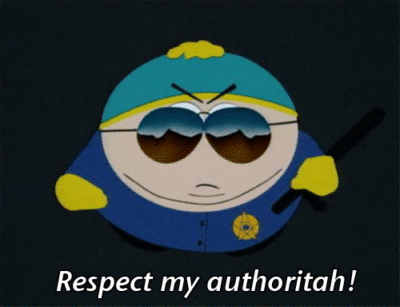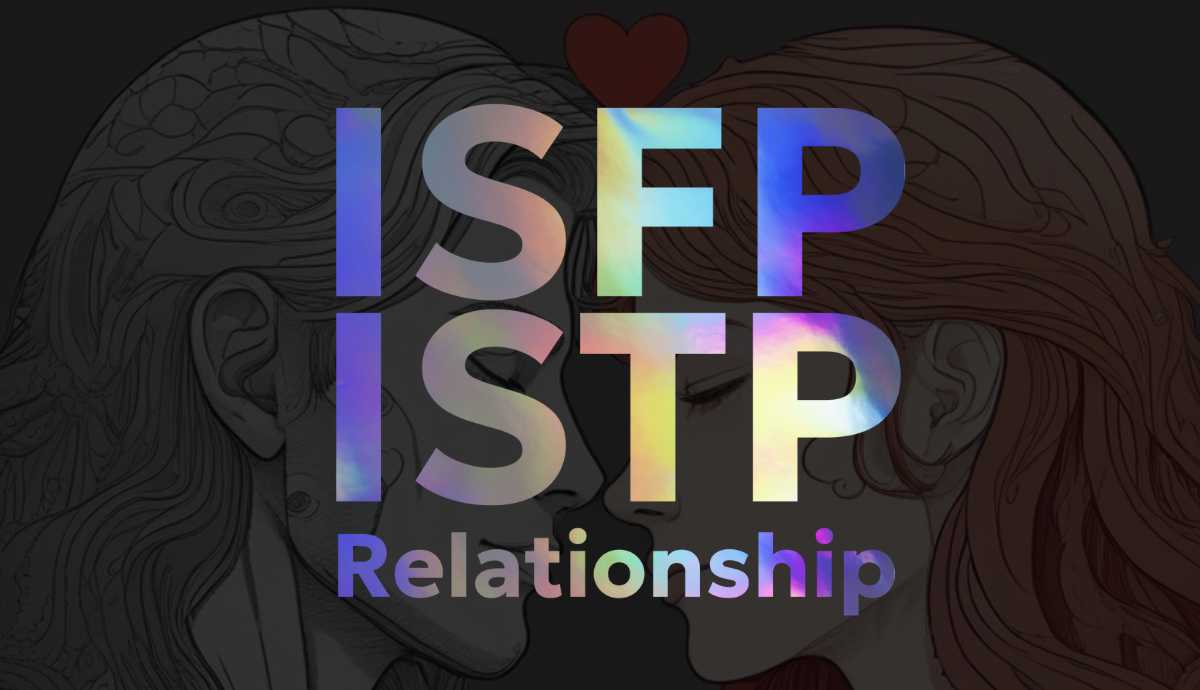When it comes to authority, people seek to either comply, defy or obtain it. When authoritative power is exercised properly it’s beneficial but when abused, it becomes oppressive. And regardless of how you feel about authority, nobody likes having it shoved down their throat. Here is a look at how you likely react to authority based on Myers-Briggs type.
INFJ
INFJ respects authority and falls in compliance so long as they do not feel coerced or disrespected by it. INFJs can appreciate the utility of authority in maintaining order in society and to enforce policies (at least the ones they agree with). All INFJ wants in return is to be shown the same respect, dignity and compassion they are willing to give elected officials and individuals occupying positions of power. If INFJ perceives an authority to be morally corrupt, then all that will go out the window.
INFP
INFP follows their own moral code and will likely judge any authority they encounter by it. They tolerate authority, but they cannot stand feeling themselves stifled or controlled by it. Many INFPs would probably detest being in the military and having their lives regimented according to the dictates of commanding officers. They would probably get written up frequently for going AWOL. INFPs are willing to defer to and respect another’s authority as long as said authority isn’t abusing their power or forcing INFP to go against their values.
INTJ
INTJ recognizes authority as necessary for establishing order and creating a chain of accountability. INTJ is only concerned with the merit and competency of those holding such power. If they do not view an authoritative figure as being qualified or worthy of their post, INTJ may undermine them with subtle insults and sarcastic remarks. INTJs may even try to show them up to demonstrate who the real authority ought to be and expose titular authorities as charlatans undeserving of their title.
INTP
INTPs want neither to control others or to be controlled. The desire for power over people is an aspiration for egomaniacs and INTP is more interested in non-people related exploits. INTPs are hard to impress and a person’s title in and of itself has little impact on an INTP’s regard for them. INTPs tend not to discriminate based on status and focus instead on an individual’s way of thinking and will likely view things like rank and other symbols of authority as superficial and contrived. They understand why they must comply but authority is almost irrelevant when it comes to challenging or questioning the validity of what is commanded of them.
ENFJ
ENFJs are likely to position themselves as moral authorities who may try to keep other authorities in check in terms of ethics. ENFJs are typically very kind, open minded and tolerant and have humanity’s best interests in mind. They try to be above reproach and so for the most part, they are likely to be on good terms with leaders and authoritative officials. ENFJs may clash with authority when they take a stand for what they feel is right. They prefer to maintain the harmony but injustice arouses their desire to fight the power.
ENFP
ENTJ
ENTJ may often view other’s authority as simply an obstacle to be overcome. ENTJ may often orchestrate some great plans and schemes only to get thwarted by bureaucratic strongholds. The challenge of outsmarting or working around the impediments presented by legislative authorities is something in which ENTJ may take some pleasure in. In the process, they seek to acquire the resources and power that will ultimately make them an authority in their own right.
ENTP
ENTP questions authority and can sometimes be wily like Bugs Bunny in their attempts to outwit them. ENTP can often find an angle to argue and dispute almost anything an authority tries to indict them with. They are like jokers who act almost as though everything were a game to see how much they can get away with. ENTPs may sometimes push their luck in how far they go with their wise-Alec quips and raillery when dealing with powerful people.
ISFJ
ISFJ wants no trouble from authority and they try to be compliant and cooperative with those entrusted with power. Since ISFJs are so friendly and eager to please, they are bound to be well liked by authority figures. They believe in upholding and abiding by the structures society runs on and ISFJs just want to play their part. Many ISFJs may have a naive trust of those with important titles as though they were divinely ordained. They tend to trust authority almost unquestionably and may view them as having an aura of wisdom.
ISTJ
ISTJ is likely to respect and appreciate authority as part of their need for structure and order in the world. They like having someone to which they can be accountable and have their diligence and hard work validated by. ISTJs respect competence and they admire leaders who simply know what they’re doing. ISTJs make it their business to know the rules and may often have a better working knowledge of them than those charged with their enforcement. For this reason, ISTJ is probably well behaved observant of the rules such that they are unlikely to have many issues with authority.
ESFJ
ESFJ is likely to try and ingratiate themselves with an authority figure and curry favor with them. They are great at casual banter and may easily disarm and reduce the stern edge of tough officials. ESFJ is very congenial and they are able to strike up conversation and find common ground and ways to relate with most people. They may view people with power in a deferential and slightly admiring way because of the cachet of higher status they hold in society.
ESTJ
ESTJ respects authority because they aspire to have it for themselves one day. They want to become highly respected and regarded as upstanding members of society. ESTJs may be excellent leaders and managers but as followers, they are a bit too outspoken and willful. They tend to see themselves as equals with those in position of power but their confidence and panache is bound to make impression. Many ESTJs work their way to the top of high paying professions thanks to years of hard work and persistence.
ISTP
ISTP doesn’t want trouble but, sometimes their temper can get them into it when confronted by authorities. Once they’re in trouble though, ISTPs may be able to think clearly enough to improvise a way out of it. ISTPs can seem cold and antisocial, especially with people who try to pull rank on them. ISTP may sometimes run a rebellious streak when they feel coerced or disrespected by an authority. They may sometimes react impulsively and get themselves into deeper trouble because they failed to think about the consequences.
ISFP
ISFPs typically don’t think much of authority and view it as something outside of and not a part of them and their desires. They believe in their own personal sovereignty and would probably live off the grid if they could. ISFPs don’t care about power, they want freedom to explore the world, express themselves truthfully and enjoy as many experiences as possible. As long as an authority isn’t standing in the way of that they have no issues. ISFPs just want to be inspired and to be an inspiration to others.
ESTP
ESTP engages with authority figures as though they were their peers. They may feel competitive and openly talk about their own accomplishments and credentials to engender respect and admiration from the authority figure. ESTPs can be very charismatic and persuasive and they may often utilize this to their advantage when negotiating with powerful people.
ESFP
ESFPs don’t care much about authority per se and they treat everyone with same warmth and enthusiasm regardless of status. Because of their convivial temperament, ESFPs are probably able to engender the good graces of authority figures in order to get themselves out of deep trouble. They can charm the socks off the staunchest of authoritarians and turn a reprimanding official into a good amigo.
Want to know your astrology placements? You can generate your astrology chart here with our free birth chart generator tool.
[ads_color_box color_background=”#000000″ color_text=”#c3f3f7″]Please share this post and subscribe for future updates 🙂[/ads_color_box]
- related posts:
- What Each Myers-Briggs Type Would Do With A Million Dollars
- What Each Myers-Briggs Type Is Like At A Party
- What Each Myers-Briggs Type Is Like During Childhood
- What Every Myers-Briggs Type Wants Most From Others
- What Each Myers-Briggs Type Does When No One’s Looking
- https://cynthiabaileyrug.wordpress.com/2018/01/02/knowing-your-personality-type-can-help-you-even-how-you-heal-from-narcissistic-abuse/
- https://introvertdear.com/news/infj-personality-needs-happy/
- https://audraedmonson.wordpress.com/2018/01/08/being-an-extroverted-introvert-or-infj-struggles/
- https://anndiananna.wordpress.com/2017/11/30/intj-infj/
- http://mbti-stereotypes.tumblr.com/post/125177402494/how-each-type-reacts-to-authority
- The 8 Cognitive Functions Explained - May 17, 2025
- American Presidents Ranked By Zodiac Sign - January 20, 2025
- ESTP and ESFP in love: 6 Dynamics of Their Relationship - September 4, 2024








